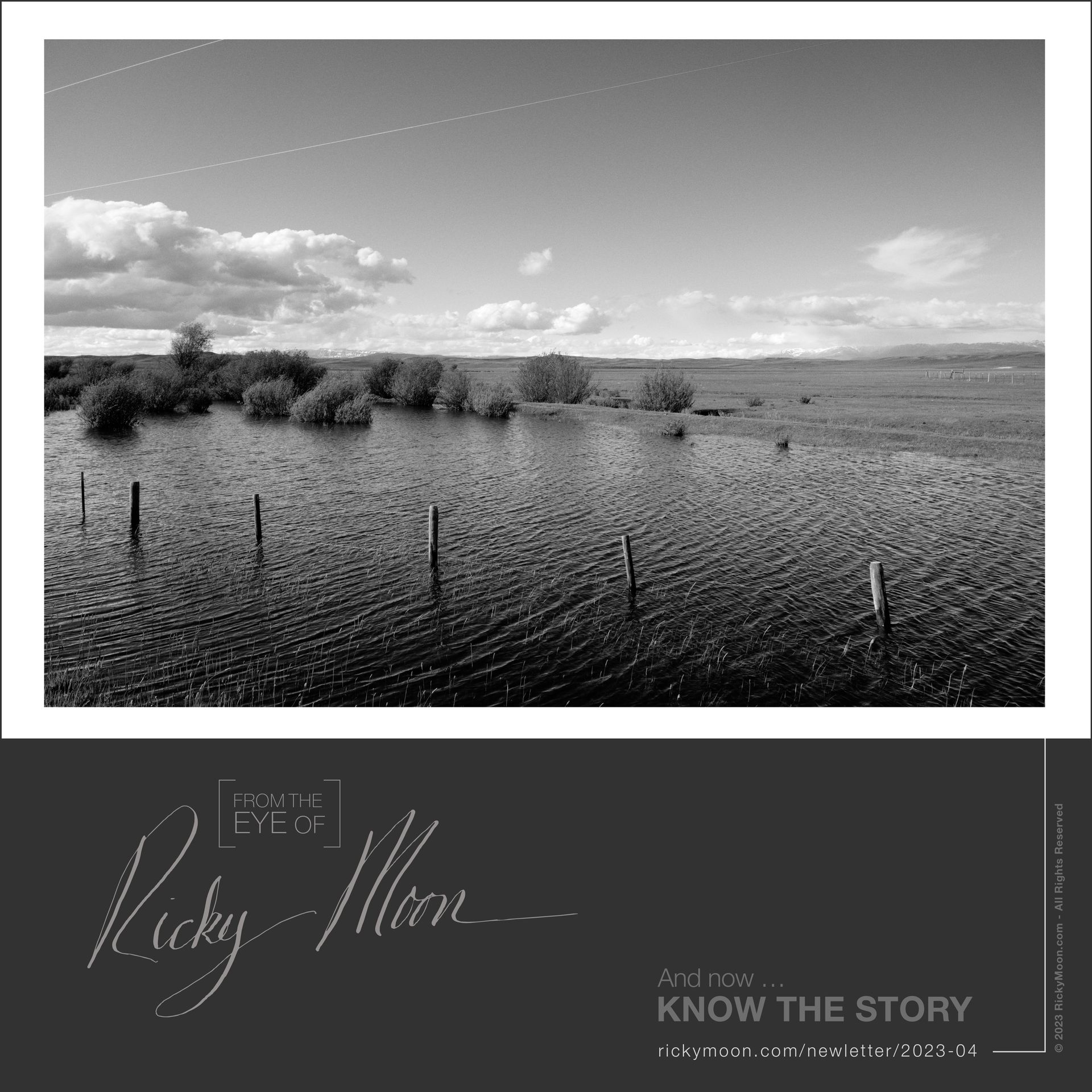
2023.04 : Love You Friend
Daniel, Wyoming U.S.A. Circa 2022
— David WhyteFriendship is a mirror to presence and a testament to forgiveness. Friendship not only helps us see ourselves through another’s eyes, but can be sustained over the years only with someone who has repeatedly forgiven us for our trespasses…
The idea that one waits for love to arrive is poisonous.
One of the crucial moments in my life was realizing that love is created internally and shared externally. We all have a bottomless well of love within us, just waiting to flow if we only uncap the well.
Another significant moment was when I promised myself to never again be an emotional coward. The strong drive for internal consistency took over, and I uncapped my well and discarded the cap. Life before that moment was crippled by fear. Life after that moment started anew.
We can’t just give, receiving graciously is critical to well-being. Thus making an interesting challenge. How best to accommodate those who only slightly loosen their well cap? In such cases, give what they can receive and be grateful for what they can give.
Seeking out those who have also removed the well-cap of love becomes one’s new normal. Imagine two rivers joining forces; they don’t need each other to exist, but together they become grand.
This leads to most jealousy being relegated to the scrap-heap of antiquated ideas.
In the episode “Elephants Can Remember” from the first episode of the 13th season of “Poirot,” a character beautifully voices the sentiment, “One can love, serve, and still be happy, even if one is not loved in return.” Modern thinking tends to view this as pathological because it assumes that love comes from outside.
Friendship is born from the convergence of wells. I know of no greater love.
The English language is woefully inadequate when it comes to love. Using ancient Greek and Latin as a reference, let’s broaden our vocabulary.
What family members feel – Storge
What systematized couples do – Pragma
What misapprehension leads to – Mania
What lovers feel – Eros
What players play – Ludus
What we love about ourselves – Philautia
What sacrificial love is – Agape
What friends love about each other – Philia
Storge and Pragma stand apart. We have no control over who our family is. We must deal with the hand we are dealt. Some are lucky to have family members they would choose if given the choice. Others are unlucky, forced to spend time with people they would otherwise cross the street to avoid. It’s also why the choice of life partner is the most consequential decision we make.
Mania is an excellent word for such an affliction. Those who haven’t experienced it are fortunate.
Eros and Ludus are enjoyable while they last; too often painfully confused with Philia and Agape.
Philautia is not a source of love; it is thoughts focused on the self.
Agape leads to a righteous life.
Philia is perfection. As Baltasar Gracian said, “Friendship (Philia) multiplies the good in life and divides the evil.”
Philia (friendship) doesn’t require Storge, Pragma, Mania, Eros, Ludus, nor Agape; it doesn’t exclude them either. Philia alone makes life worth living and well-lived. Any combination of Philia, Eros, Ludus, and Agape create interesting experiences.
As a young man, my greatest fear was ending up in the friend zone. As a man, my greatest fear is having a partner who isn’t my friend. As I mature further, the thought of having or not having a partner without friends is unthinkable.
This week’s photo of the flooded fence posts, bonded together by their barbed wires; Philia encapsulated. It inspired the words I shared with the dearest of friends. Words I now share with you describing why I so highly value Philia:
To stand witness for each other’s lives.
To be one another’s touching stone between life’s battles.
Continuously create new shared life experiences in preparation of the twilight years.
And now … know the photograph.

